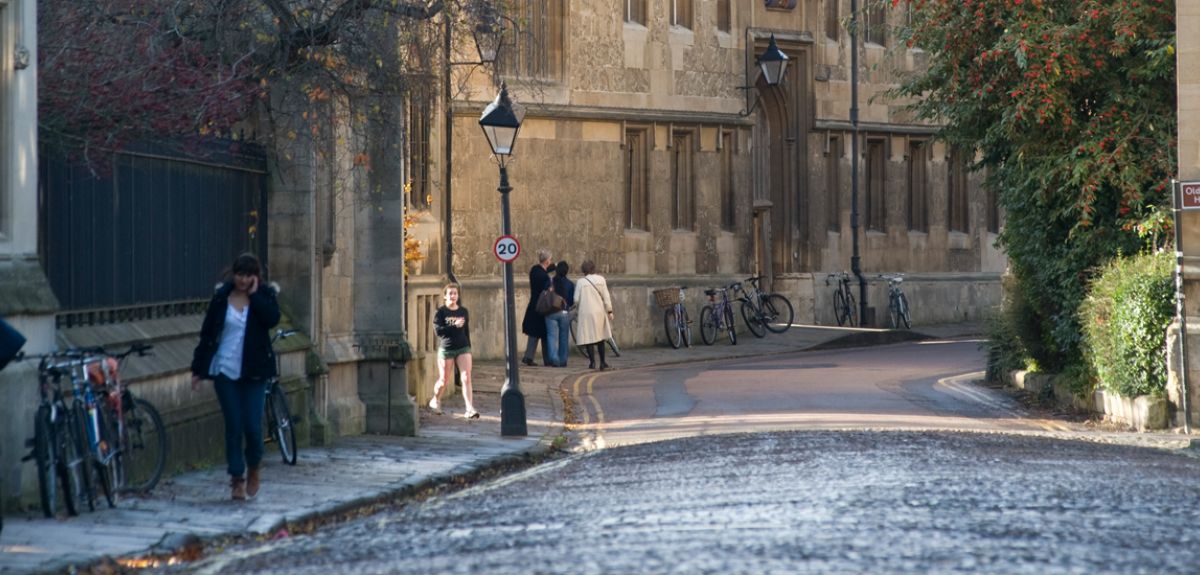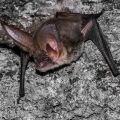
(Credit: Oxford University Images / Rob Judges Photography)
Oxford interviews explained
Over the next two weeks Oxford will welcome thousands of prospective undergraduate students as they take part in the University’s annual admissions interviews.
Most candidates will have at least two interviews, depending on their chosen subject of study, and will stay in Oxford’s colleges for the duration of their subject interviews, at no cost.
Each year, the questions asked are subject specific, and give the candidate an opportunity to show their interest and passion for their chosen subject. Students applying for Modern Languages may be asked about why it is important to still learn French or Italian, in a world where the dominant language is English, while aspiring engineers could well be asked to explain and sketch the physical forces behind velocity, that determine the process of kicking a football, from being at rest to up in the air.
Regardless of the question asked during your interview, it is important for candidates to remember that getting the answer ‘right’, is not necessarily the overall goal, as Professor Nick Yeung, Professor of Cognitive Neuroscience, and Tutorial Fellow at University College, explains: ‘In every interview I want to get to a point where the person doesn’t immediately know the answer. Because one of the really important things that we want to look at is, how does the person think when they don’t already know the answer. Certainly we are ready to prompt them and we don’t want anybody to be sitting there for minutes, but I think one of the things we’ll do in an interview is give people the space and time to think and we might, if they’re sitting there a bit puzzled, we might ask somebody to start thinking out loud, say what their first thoughts are and then develop it from there.’
Samina Khan, Director of Undergraduate Admissions and Outreach said: ‘The process is built to help the applicant and make them feel as comfortable as possible. New, unfamiliar surroundings, where you are being questioned by people you have never met, can be overwhelming, so we set-out to put the student at ease and keep things as simple as possible.
‘There are no trick questions, everything that we ask has a purpose, and that is to show us how a student thinks and responds to new ideas and information, in an academic conversation akin to the tutorials that they will take part in if they come to Oxford to study. We are looking for potential, to see if they can hold their own in an academic conversation on a subject that they are passionate about, or issues that they have included on their personal statements that they care about. A top tip would be to read and understand the texts and issues that you have put on your personal statement – this is not the time to wing it.’
In addition to mock interviews and a pamphlet about the interview process which is available online, the University has this year produced a podcast featuring three admissions tutors sharing advice for interviews and offering steer on some of the questions that might be asked.
Dr Khan adds: ‘We know that there are myths and misconceptions about the Oxford interview, so we put out as much information, and have many student helpers on-hand to put the student at ease. Having an idea of what to expect allows them to prepare for their interviews and goes some way towards reducing the unknown. ’
LISTEN TO THE 'KNOW YOUR OXFORD' INTERVIEW PODCAST HERE
SAMPLE QUESTION EXAMPLES:
Subject: Earth Sciences
Interviewer: Professor David Pyle, Professor of Earth Sciences, Geodesy, Tectonics, Volcanology and Related Hazards
Question: Present the candidate with a rock specimen and ask them to describe the rock and what they are seeing
Response: Quite a few of my colleagues may bring a rock specimen in with them for an 'observe, describe and infer' style of question. The rock may well have some particular feature - in the way it appears, or the materials it is made from - that the interviewer will start with. The questions will start along the lines of … here's a rock; spend a few moments looking at this sample, and handling it. Can you tell me what you can see - I don't want to know what it is, I'd like you to describe what the rock look like, or appears to be made of. Can you see particles? or crystals? What does it look like to you? Use any sorts of descriptive words that you are familiar with. We make no assumptions at all about whether the candidates have looked at rock before, or not.
The focus at the start is to make careful observations, keeping these separate from any pre-conceived or instant interpretation that the candidate might want to jump to. These observations form the evidence for how the rock may have formed; and, ultimately, for what we might call the rock.
We'll then pick up on the observations, and lead the questions so that the discussion moves on to thinking out loud about what physical or chemical processes might have helped to create that particular feature of the rock: why are the grains round? Did they start off that shape, or have they been moved around? What sort of place on earth today can you think of where you might find grains that look like this? Why do you think that the rock is red? What elements or compounds are you familiar with that have a red colour? And so on. The way to approach these sorts of problems is to listen to the questions, and to take your time thinking out loud as you work through the task. This isn't a pop quiz, or an exercise in knowing stuff; it is an exercise in seeing how you can gather evidence objectively, and then to use that information to build up some simple ideas about how the sample might have formed.
Subject: Politics, Philosophy and Economics
Interviewer: Dr Matthew Williams, Academic and Career Development Fellow, Jesus College
Question: Is war the opposite of politics?
Response: It is common for interview questions in politics to tacitly (or in this case explicitly) ask — what is politics? This is a tough question, but an important one for the discipline. Good responses will break down the question, interpreting what is understood by ‘war’, ‘politics’ and ‘opposite’. The interviewer will look for the candidate to offer an argument in response to the question, and explain how they have interpreted the question.
In common usage, ‘politics’ can include ‘war’, not be opposed to it. So the ambition is to encourage students to think outside the box, and imagine an interpretation of politics that could even be considered to be positive and optimistic — politics as the avoidance of conflict. The best responses will notice that terms like ‘war’ can mean physical acts of violence, but could also include cyber warfare, or financial piracy. And, politics could be considered at the level of states and all the way down to the level of families. Hence the stark differentiation of war and politics may not be very useful to our understanding of these terms.
The further the interview goes, the more we will talk abstractly about the use of concepts. At root, the question asks about the validity of posing binary opposites to understand concepts like politics. Does this polarising use of language (x is the opposite of y) illuminate or obscure the reality? This might be a question to end the interview on.
Subject: Psychology
Interviewer: Professor Nick Yeung, Professor of Cognitive Neuro-Science and Tutorial Fellow at University College
Question: What is the significance of the brain’s ‘face area’, and it being stimulated when people see and recognise faces?
Response: Facial recognition is a skill that is very useful and we mostly take for granted. By asking this, we are looking for the candidate to think critically about experimental design, and what we can learn from the results. For example, does the experiment have a clear hypothesis and predictions? Is it well designed to test these? Are the methods used appropriate? Does the experiment have necessary control conditions?
As well as thinking critically, we're also looking for the candidate to think creatively, for example about how the experiment could be improved and what the results of such an experiment might tell us about how people think and how the brain works: What does it mean to "recognise" a face? What cognitive processes are involved? What might be special (or not special) about faces? Why might there be a brain area devoted to face recognition?
 New study on Amazonia's fire crises urges action ahead of the next burning season
New study on Amazonia's fire crises urges action ahead of the next burning season
 New heart disease calculator could save lives by identifying high-risk patients missed by current tools
New heart disease calculator could save lives by identifying high-risk patients missed by current tools
 Modern Slavery and Human Rights Policy and Evidence Centre moves to Oxford University after receiving continuation funding
Modern Slavery and Human Rights Policy and Evidence Centre moves to Oxford University after receiving continuation funding
 Study shows that island bats are valuable allies for farmers
Study shows that island bats are valuable allies for farmers
 Study reveals how humanity could unite to address global challenges
Study reveals how humanity could unite to address global challenges